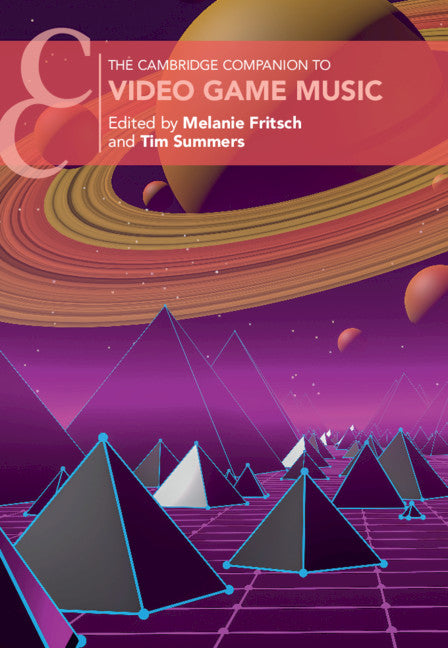Freshly Printed - allow 8 days lead
Couldn't load pickup availability
The Cambridge Companion to Video Game Music
A wide-ranging survey of video game music creation, practice, perception and analysis - clear, authoritative and up-to-date.
Melanie Fritsch (Edited by), Tim Summers (Edited by)
9781108473026, Cambridge University Press
Hardback, published 29 April 2021
372 pages
17.5 x 25 x 3 cm, 0.98 kg
'The work as a whole is useful for both game researchers and game designers; individual essays focus on such topics as intellectual property, music theory, the history of technology since the 1970s, identity and representation in video games, and the affective and physiological effects of music beyond this specific field … Recommended.' W. McNelis, Choice Connect
Video game music has been permeating popular culture for over forty years. Now, reaching billions of listeners, game music encompasses a diverse spectrum of musical materials and practices. This book provides a comprehensive, up-to-date survey of video game music by a diverse group of scholars and industry professionals. The chapters and summaries consolidate existing knowledge and present tools for readers to engage with the music in new ways. Many popular games are analysed, including Super Mario Galaxy, Bastion, The Last of Us, Kentucky Route Zero and the Katamari, Gran Turismo and Tales series. Topics include chiptunes, compositional processes, localization, history and game music concerts. The book also engages with other disciplines such as psychology, music analysis, business strategy and critical theory, and will prove an equally valuable resource for readers active in the industry, composers or designers, and music students and scholars.
Foreword: The collaborative art of game music Lydia Andrew
Introduction Melanie Fritsch and Tim Summers
Part I. Chiptunes: 1. Before red book: early video game music and technology James Newman
2. Chiptune, ownership and the digital underground Kenneth B. McAlpine
3. Waveform wizard – an interview with Junko Ozawa, trans Lyman Gamberton
Part II. Creating and Programming Game Music: 4. Building relationships: the process of creating game music Guy Michelmore
5. The inherent conflicts of musical interactivity in video games Richard Stevens
6. The triple lock of synchronization K. J. Donnelly
7. 'Less music, now!' – new contextual approaches to video game soundtracks Rob Bridgett
8. Composing for independent games: the music of kentucky route zero Ben Babbitt
Part III. Analytical Approaches: 9. Music games Michael Austin
10. Autoethnography, phenomenology and hermeneutics Michiel Kamp
11. Interacting with soundscapes: music, sound effects, and dialogue in video games Elizabeth Medina-Gray
12. Analytical traditions and game music: super mario galaxy as a case study Steven Reale
13. Semiotics in game music Iain Hart
14. Game – music – performance. Introducing a ludomusicological theory and framework Melanie Fritsch
Part IV. Realities, Perception and Psychology: 15. A step back from reality: sound and presence in computer games and other worlds Mark Grimshaw-Aagaard
16. Audio and the experience of gaming: a cognitive-emotional approach to video game sound Dana Plank
17. Physiological responses and game music Duncan Williams
Part V. Game Music, Contexts and Identities: 18. Game music and identity Chris Tonelli
19. Game music and history James Cook
20. Open worlds: globalization, localization, and video game music William Gibbons
21. Female credit: excavating recognition for the capcom sound team Hillegonda C. Rietveld and Andrew Lemon
Part VI. Beyond the Game: 22. Pop music, economics and marketing Andra Iv?nescu
23. Game music beyond the games Ryan Thompson
24. Producing game music concerts Thomas Böcker.
Subject Areas: Digital music: consumer/user guides [UDM], Music industry [KNTF], Music recording & reproduction [AVX], Electronic music [AVGV]


